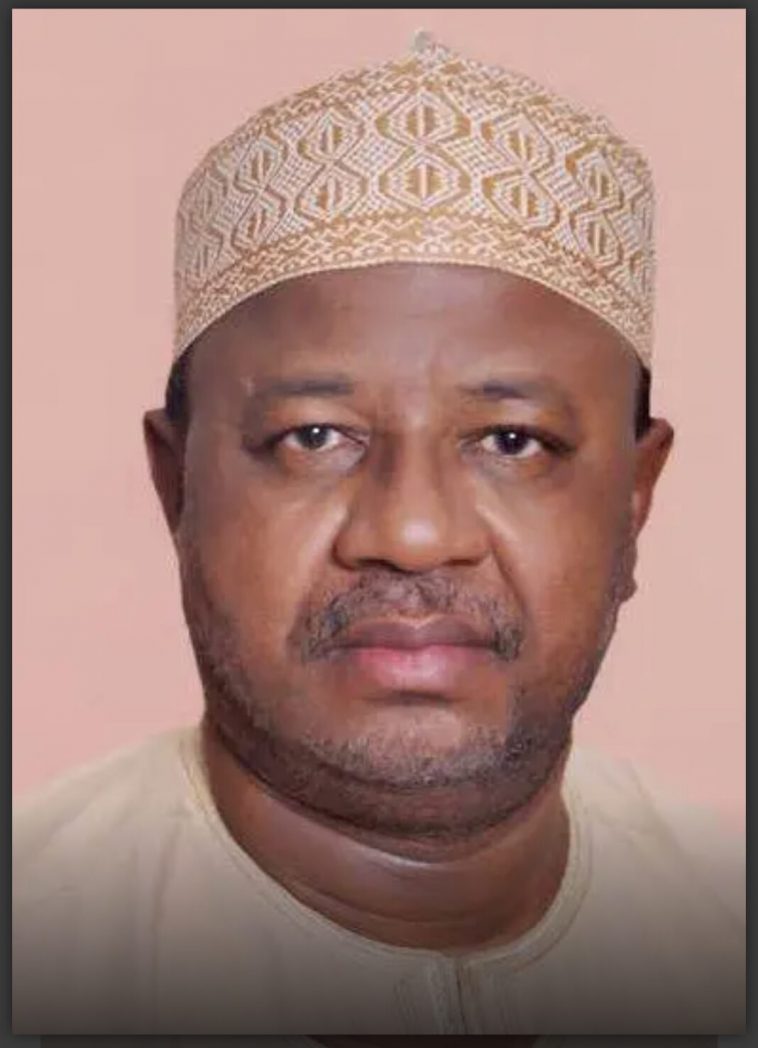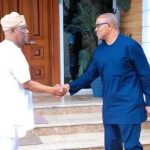In 2015, the campaign slogan of APC’s presidential candidate, Mohammadu Buhari, was ‘APC SAK’. By this, Buhari was urging the electorate, especially of Northern Nigeria, to vote APC all through from top to bottom. In return, he promised that the ensuing APC government he would head will solve the teething problems of the country.
Specifically, he named economy, insecurity and corruption as priority areas. From one campaign lecture to the other, the APC presidential candidate was hard on the PDP, accusing the then governing party of destroying the fabric of the Nigerian society in its 16 years rule.
Understandably, majority of the electorate believed him and, particularly the electorate of Northern Nigeria (except for the lone state of Taraba), voted ‘APC SAK’. At the return of all election results, APC won the presidency, 24 state governors and almost 2/3 seats in the National and State Assemblies. Thus, Buhari was elected president; and by that, Nigerians had fulfilled their own side of the social contract. Having been installed to power, it is then the turn of President Buhari, as head of the APC regime, to fulfill the promises made to the Nigerian electorate.
But more than seven years in office, with less than a year to go, it is clear that the President Buhari-led APC Administration has failed to fulfill its core promises. The regime unarguably failed Nigerians and the international community. The facts are indisputable.
To start with, the economy has not improved; rather, it virtually collapsed. The national Gross Domestic Product (GDP), representing the total value of all economic activities in the country, has nosed-dived and remained down, pushing the country into almost a state of permanent recession. With the value of the naira plummeting to an exchange rate of N610 to $1 today, and the resulting inflation sending many Nigerians below poverty line into state of deprivation and destitution, Nigeria is pronounced the poverty capital of the world.
On insecurity, the situation is no better. In fact, like the economy, things have gone from bad to worse. Not only that the dreaded Boko Haram insurgency is still rampaging, pillaging and killing like never before, thus belying government’s claims of ‘technically defeating’ the terrorist group, but also the group has grown in power and influence, transforming into what is now known as The Islamic State in West Africa Province (ISWAP). From its main base in the Lake Chad region, ISWAP has intensified its fierce and deadly guerrilla war, carving a territory to itself, setting up governance, imposing levies and taxes, facilitating commerce and cultivating support among local inhabitants. In addition, banditry, kidnappings, internecine communal genocides, cultism, highway robberies, militancy, and violence of unimaginable propositions have become common phenomena in virtually all states of the federation, overwhelming the country’s security system. To all intents and purposes, nobody and nowhere is safe as there is practically no governance in all rural communities across the country. Recognizing this fact, many communities and states of the country had to establish their own local militias and security units to protect themselves.
Consequently, Nigeria is ranked No.3 on the list of world’s most terrorized nations.

From SAK to CHIK: An essay on classical leadership failure By UMAR ARDO PhD
By
–
June 22, 2022
https://www.facebook.com/plugins/like.php?href=https://politicsdigest.ng/from-sak-chik-essay-classical/&layout=button_count&show_faces=false&width=105&action=like&colorscheme=light&height=21

From SAK to CHIK: An essay on classical leadership failure By UMAR ARDO PhD
POLITICS DIGEST- In 2015, the campaign slogan of APC’s presidential candidate, Mohammadu Buhari, was ‘APC SAK’. By this, Buhari was urging the electorate, especially of Northern Nigeria, to vote APC all through from top to bottom. In return, he promised that the ensuing APC government he would head will solve the teething problems of the country.
Specifically, he named economy, insecurity and corruption as priority areas. From one campaign lecture to the other, the APC presidential candidate was hard on the PDP, accusing the then governing party of destroying the fabric of the Nigerian society in its 16 years rule.
Understandably, majority of the electorate believed him and, particularly the electorate of Northern Nigeria (except for the lone state of Taraba), voted ‘APC SAK’. At the return of all election results, APC won the presidency, 24 state governors and almost 2/3 seats in the National and State Assemblies. Thus, Buhari was elected president; and by that, Nigerians had fulfilled their own side of the social contract. Having been installed to power, it is then the turn of President Buhari, as head of the APC regime, to fulfill the promises made to the Nigerian electorate.
But more than seven years in office, with less than a year to go, it is clear that the President Buhari-led APC Administration has failed to fulfill its core promises. The regime unarguably failed Nigerians and the international community. The facts are indisputable.
To start with, the economy has not improved; rather, it virtually collapsed. The national Gross Domestic Product (GDP), representing the total value of all economic activities in the country, has nosed-dived and remained down, pushing the country into almost a state of permanent recession. With the value of the naira plummeting to an exchange rate of N610 to $1 today, and the resulting inflation sending many Nigerians below poverty line into state of deprivation and destitution, Nigeria is pronounced the poverty capital of the world.
On insecurity, the situation is no better. In fact, like the economy, things have gone from bad to worse. Not only that the dreaded Boko Haram insurgency is still rampaging, pillaging and killing like never before, thus belying government’s claims of ‘technically defeating’ the terrorist group, but also the group has grown in power and influence, transforming into what is now known as The Islamic State in West Africa Province (ISWAP). From its main base in the Lake Chad region, ISWAP has intensified its fierce and deadly guerrilla war, carving a territory to itself, setting up governance, imposing levies and taxes, facilitating commerce and cultivating support among local inhabitants. In addition, banditry, kidnappings, internecine communal genocides, cultism, highway robberies, militancy, and violence of unimaginable propositions have become common phenomena in virtually all states of the federation, overwhelming the country’s security system. To all intents and purposes, nobody and nowhere is safe as there is practically no governance in all rural communities across the country. Recognizing this fact, many communities and states of the country had to establish their own local militias and security units to protect themselves.
Consequently, Nigeria is ranked No.3 on the list of world’s most terrorized nations.
The same failure is as well evident in the fight against corruption. With the appointment of Ibrahim Magu, the head of the EFCC, the key anti-corruption agency, in contravention of the law, the fight against corruption started on a wrong footing. On account of security reports accusing him of corruption, thus denting his moral integrity to prosecute the war, the senate declined to confirm his nomination as required by law. Still, the president put him in office for about five years, thus calling to question the sincerity of the administration’s commitment to fight corruption. Not surprisingly, Magu himself ended up being further accused by his supervising minister, Abubakar Malami, of re-looting recovered corruption loots and ignominiously removed from office. In effect, the twin evils of bribery and corruption continued to thrive unabated under the Buhari-led APC regime. Hence, all over the country, persons on corruption allegations and charges are roaming about free. Many have even bribed themselves back into public offices either in elective or appointive capacities. There are also widespread outrageous opened displays of stupendous wealth by several serving public officers, the president’s family members and close associates, hitherto living from hand to mouth, suggesting corrupt enrichments within the new government. Nigeria today is ranked as world’s fourth corrupt nation on the index of Transparency International.
Aside from these core issues, there are also many other aspects of our national life that have similarly deteriorated under the Buhari administration, principal of which is ethical decay. What is morally wrong, has today become politically right. Hence, public operators, elective, appointive and bureaucratic, have become society’s nouveau rich and being celebrated for that. One needs not list instances, for they are endless! For a regime that promised so much and delivered so little on all scores, the bloom, as botanists would say, is well off the roses in its garden.
This dismal failure to deliver, in my opinion, is as a result of six major failings in leadership.
First, there is incapacity to provide strong and decisive leadership by President Buhari himself. Even though the regime’s apologists would tend to blame these failings on the enormity of the misdeeds of past regimes, or the dislocated structures of our society, the real reason is lack of leadership’s firmness, confidence and direction from the president. Almost any problem can be successfully resolved if there is effective leadership at the top. All that is required is the force of personal leadership, and this has been manifestly lacking in President Buhari throughout these years.
After over seven years on the saddle, a clearer irresistible pattern of the president’s leadership style is deducible. He can rightly be termed as a passive leader – one who allowed problems to solve themselves, refusing to intervene even when it was absolutely necessary! Given that problems don’t solve themselves, it ultimately requires direction and prodding of the leadership. Principles and practices of good leadership demand for one dominant unifying purpose – i.e. to facilitate clear decisions and enable prompt, efficient execution of those decisions! Yes, some decree of collective decision-making of the cabinet on critical national issues is necessary, but such collective decisions still need a single leading mind that keeps close control and supervision of the overall strategic objectives and direction of government.
This entails the leader taking full charge and responsibility for the act and outcome of whatever events government sets in motion. Where this is lacking then there is a problem. And this simply has been absent in President Buhari’s leadership.
Second, even in organizing for collective decisions, President Buhari had exhibited another serious leadership deficit. Over the years, it became all too clear that there has been lack of harmony and coordination among the various segments and agencies of the executive organ headed by him. There were serious conflicts and acrimony among members of the government that affected the regime’s general output. In all these the president preferred to let his appointees thrash out issues and settle differences and disagreements themselves, with minimum or no intervention from him. This is a wrong approach to leadership, as harmony and cooperation are bench phrases for a successful government, the role of the leader in ensuring this condition is essential.
Third, President Buhari seemed to have little value for ideas and innovations. The essence of collective decision-making in a government is to aggregate various ideas from cabinet members with a view to evolving the best policy option for problems at hand. As we all know, there are plenty of good ideas out there if only they were listened to and harnessed into use by the leadership. But the president had proven to be a non-listening leader.
This explains his constant rebuffing of all genuine and well-meaning calls on him to amend his ways on certain national issues. He even alienated ideas of his key appointees through his misconceived directive to his Cabinet Ministers to pass through his Chief of Staff in dealing, communicating and meeting with him. Needless to say, this was a bureaucratic process that delivered nothing but mediocrity in the regime. A serious leader must evaluate and guide firsthand the initiatives of his appointees. In a situation where another appointee becomes responsible for evaluating and deciding on policy initiatives of other appointees, not only an unnecessary bureaucratic bottleneck will be created but the process also will diminishe the zeal, confidence and energy of the appointee concerned, ultimately hindering the general policy outputs of government. Naturally, this lack of direct evaluation and guidance of the president on the initiatives of his appointees rendered the government slow, weak and bankrupt in ideas, and in policy formulation and implementation. Consequently, nothing was properly or usefully designed and decided, as all initiatives and energy were paralyzed. Naturally, under such a situation nothing much was achieved by the regime.
Fourth, whatever efforts put forth by other members of the government were mired in confusion from the outset owing chiefly to lack of good understanding of the real issues at play, thereby resulting in the regime’s poor policy options and choices. The reason being that most of the personnel appointed do not fit the offices they hold. Sourcing the right personnel to occupy key offices of government is no doubt important, but the refinement of the personnel to fit the offices they are assigned to is even more important. To this end, sufficient thought to be given in matching the character of the individual appointee with the demands of the office assigned to him or her. In this, President Buhari also failed miserably. A purposeful leadership must always have its policy makers strive to conceive and implement new initiatives so as to create and maintain positive momentum for the government. And this can only happen if the right persons hold the right offices.
The fifth failing in President Buhari’s leadership style is temporization. The president hardly took decisions on virtually every issue. In fact, it looks as if the president hates taking decisions at all until compelled to do so. We have seen that in him time and again on even the most serious issues, including the formation of his cabinet, acting on corruption allegations against his appointees, changing his Service Chiefs, injecting capable hands into government, on political party issues, etc. Not that long period of procrastination necessarily gives cause to taking right decisions, or decisiveness leads to taking bad decisions, but temporization is hardly a virtue in the books of leadership. In fact, as the saying goes, the more easy it is for a leader to do nothing, the harder it is for him to achieve anything. A good leader must be decisive; he must abhor procrastination, temporization and equivocation. A critical virtue of an effective leader is to ponder, then act and take full responsibility. We have seen this virtue in President Obasanjo; for whatever may be said of Obasanjo’s leadership faults, he was undoubtedly, to his eternal credit, at least a decisive leader. President Buhari is not!
Sixth, arising from all the above, there was lack of strategic imagination on the need to and ways of breaking out of this stalemate. These latter failings are directly related to the first – leadership failure at the top!
These manifest deficiencies, other than bringing the country to a complete halt (Chik), were both unsuited to the active requirements of a country in dire need of peace, economic growth and political stability, and uninspiring, discouraging and disappointing to zealous and devoted politicians, intellectuals, bureaucrats, patriotic citizens, etc. who are eager to see Nigeria leap forward into a developed world in the 21st century.
I concede, however, that consequences of leadership failure may vary with the severity of the situation on ground. If, for example, institutions in the polity are strong and social conditions fairly stable, like in the United States, leadership failure may not be so disastrous. We have just seen that in President Donald Trump’s leadership failings. But if the polity is weak with fragile institutions, demanding drastic changes and innovations to fix, like the Nigerian situation when Buhari came into office, under such circumstances, failure to provide strong, visionary and inspirational leadership to actively lead the country through the needed changes would be catastrophic.
But in both instances, leadership failure erodes a key characteristic of effective governance – trust! Good leadership creates conditions of trust by making clear mission and achieving it. Failures therefore erode people’s trust and make it impossible for the leader to succeed. Therefore, without a drastic change on the part of citizens against their condescending attitudes to such leadership failings, such as President Buhari’s, I am afraid the polity will continue wobbling till it crashes to the ground. Hence, Buhari’s presidency is for Nigeria just another eight years of squandered time and resources that offered no solutions for salvaging the country, redeeming and securing her future. The regime is, to all intents and purposes, as Aristotle, the great Greek philosopher, would say, “like a cloud that passes on without dropping rain”.
This is where SAK has brought us all to – CHIK!






